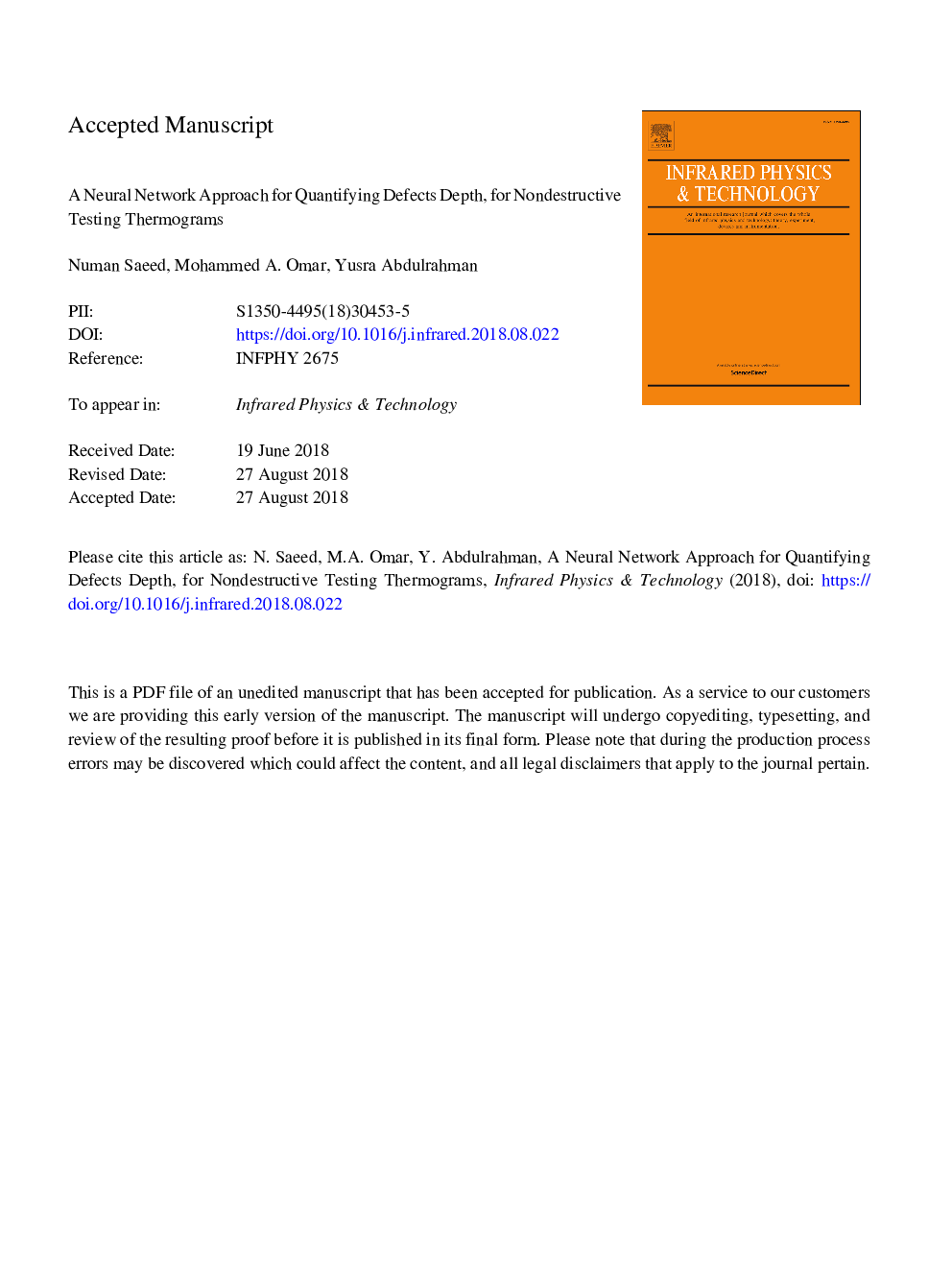| Article ID | Journal | Published Year | Pages | File Type |
|---|---|---|---|---|
| 10136538 | Infrared Physics & Technology | 2018 | 26 Pages |
Abstract
The peculiar properties of carbon fiber-based composites being light in weight yet strong increased their adoption in several industrial and civil structures. However, their anisotropic properties and their fabrication complexity challenges current nonintrusive testing modalities. This text presents and implements a new algorithm based on a multilayer Neural Network NN post-processor, to predict defect depths in real-time, when coupled to a Line-scan thermography setup. The testing routine is composed of a linear- X-Y-Z stage used to continuously traverse a controlled heater in tandem with a thermal detector. The study models the proposed inspection routine using a multiphysics simulation to generate synthetic datasets. To accurately model the heat flow along the carbon fiber, “curvilinear coordinates” physics have been considered in the model. The trained neural network was verified for defect depth detection using test datasets scoring an accuracy of 97.5% for synthetic data with defect depth up to 1â¯mm. Experimental validation of the developed neural network is also conducted reaching a worst-case accuracy of 90% for a 0.5â¯mm depth.
Related Topics
Physical Sciences and Engineering
Physics and Astronomy
Atomic and Molecular Physics, and Optics
Authors
Numan Saeed, Mohammed A. Omar, Yusra Abdulrahman,
